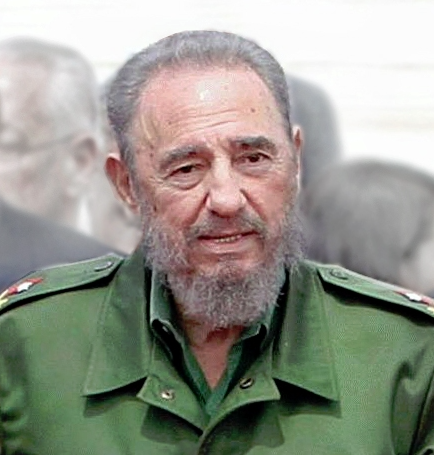Fidel Castro’s Death Prompts Mixed Reactions

Castro is one of the most controversial leaders to reign in the 20th century
Fidel Castro – long time dictator of Cuba – died Friday night at age 90. He had been sick for some time, rarely being seen in public, and had passed his power down to his brother about 10 years prior. Across the world, feelings are mixed about the death of a man some would call a tyrant, and others would call a revolutionary.
Castro had long been an enemy of the United States. His persistent opposition to capitalism and many American policies, even in the face of the obvious benefits they would have for his people, has led some to view the leader as strong-minded and progressive, and others to view him as overly-stubborn and cruel. The economic ruin that Cuba has faced over recent years has demonstrated once again the general ineffectiveness of communism as an economic system, yet Castro always stayed true to his core beliefs, idealistic as they were.
A similar contrast in opinion arises when looking at Castro’s role in his country’s government. He single-handedly managed every aspect of Cuban affairs- from agricultural benchmarks to the justice system to an isolationist foreign policy. This total control can be viewed as an impressive feat coming from a man capable of a wide range of management, or as a violation of the principle that no man should wield absolute power, given its tendency to corrupt.
Within Cuba, a public image of respect has been displayed regarding their long-time leader’s death. While it is likely that many citizens secretly resent Castro’s oppressive rule, it is unlikely that they will see much change in the political climate of their country, given that Castro’s brother, Raul, is presently in command. The media within Cuba has been honoring Castro in the wake of his passing, hailing him as the country’s great father, and wishing that his spirit live forever.
Conversely, in the streets of Miami, Florida, celebrations took place in the streets for the majority of Saturday when the news of Castro’s death was announced by his brother. Residents of Miami – many of whom are of Cuban descent, or have escaped from Cuba in their lifetime – generally resent Castro and the suffering he has caused so many Cubans over the years. Perhaps the contrast in reaction between the people of Cuba and the people of Miami stems from the contrast in the respective country’s allowance of free speech, and not from the citizens’ actual feelings surrounding the event.
While opinions differ greatly on Fidel Castro and his rule over Cuba, it is indisputable that he was a man of great importance to the world- a man whose life has taught many important lessons, whether they are lessons prompting action similar to his, or opposite it. Comment to let MDO know what you think of this visionary/ despot.
